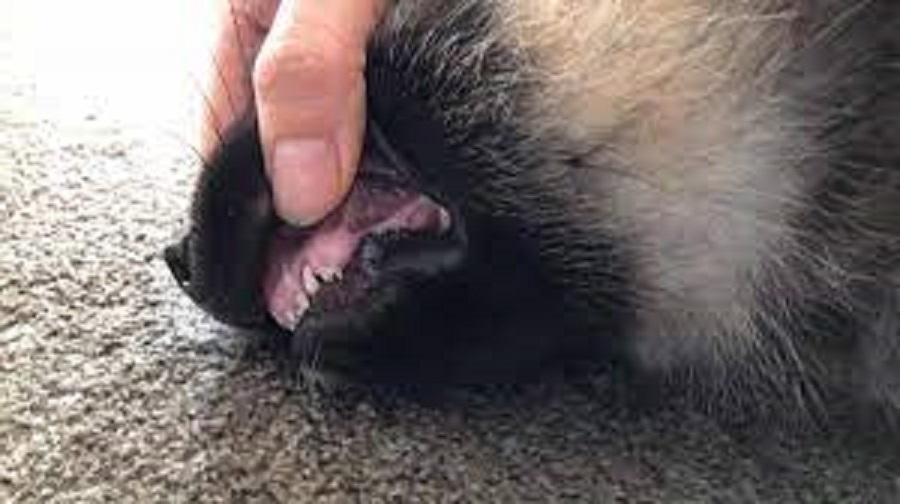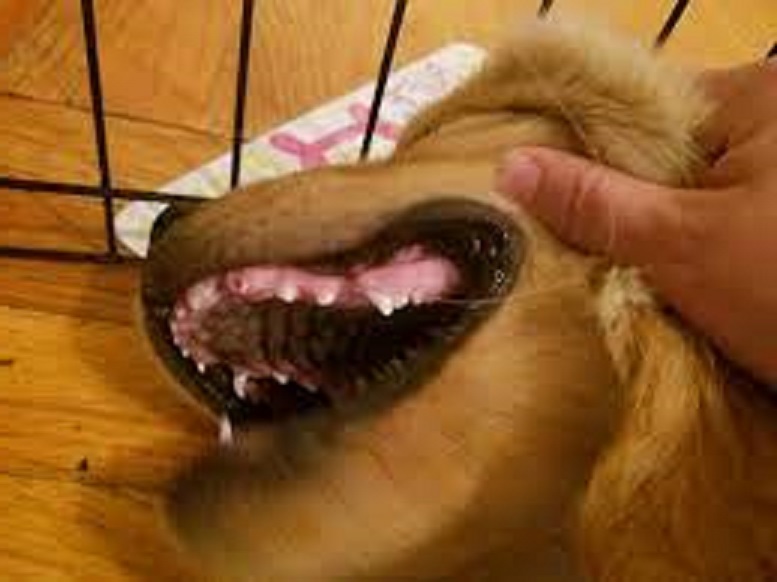Some things in life are just unavoidable, like taxes and broken canine teeth. Unfortunately for one 12 week old puppy, his broken canine tooth was just that – unavoidable. The little guy’s owners were heartbroken when they found out their pup needed surgery to fix the tooth, but thankfully he is on the road to recovery! Learn more about what happened and how the surgery went in this blog post.
When a 12-week old puppy breaks the canine tooth, it is normal for them to lose their teeth at any time. It’s common for puppies to be born without all of their baby teeth and they may break or fall out when they are learning how to eat solid food. A broken tooth can hurt your pup but if he is acting like himself then you shouldn’t worry too much about it.
Table of Contents
What happens when a 12-week old puppy breaks his canine tooth?
This is an unfortunate story. This twelve-week-old puppy came to the clinic for an exam after his owners noticed he was chewing on one side of his mouth. They had no idea how it happened, but when they came in I was able to take a look at him and assess the damage. His canine tooth has a fracture and went down into the pulp canal. This means that it wasn’t a crack in the tooth, but in fact, had penetrated the tooth’s pulp canal, so it needed to be removed.
Please note that only the veterinarian can determine whether or not an injury is an emergency or if your pet can wait to be seen.
Is it normal for 12-week old puppies to lose their canine teeth?
In the case of a 12-week old puppy, it’s normal for them to lose their canine teeth. In fact, It’s not unusual for pups to be born without some of their infant’s teeth and need to break them when they’re eating. If your puppy is acting like himself but has broken a tooth, there’s no need to worry about it too much.
This puppy, however, did not lose the tooth due to a traumatic injury. The fracture was due to a developmental issue in his tooth. As you know, canine teeth are the most likely to experience trauma due to their size and function!
The puppy is only 12 weeks old, which is why his very young canine teeth are still wobbly and not well anchored to the gums. Puppies lose their baby teeth naturally between 4-8 months of age, so it’s not an emergency if they come out within this period.
Does a broken tooth hurt a puppy?

There is a nerve inside the tooth, called the pulp canal. If the fracture penetrates this canal, then there will be pain because it’s now exposed to the mouth. The pulp canal houses the nerve and it’s also filled with blood vessels and other cells. This is why a fractured canine tooth hurts: the pulp canal supplies nerves to the tooth which are exposed after a fracture.
If your pet’s broken tooth doesn’t bother them, then you can wait for it to fall out naturally. However, If you wait for the tooth to fall out, there is a risk that the pulp canal will dry out and close. If the pulp canal closes, then your pet won’t feel any pain if he eats something that might otherwise damage his teeth.
This is why it’s important to take your pet to the veterinarian if you notice that your dog or cat has broken a canine tooth!
At what age does a puppy lose canine teeth?
Normally, the teeth start coming in around 3-4 weeks of age. The puppy will have a full set of 28 babies (deciduous) teeth by the time they’re 6-8 weeks old. The baby teeth are then replaced with adult teeth starting at around 4 months of age, but keep in mind that this is just an average. Some dogs will have their adult teeth earlier, and some later.
12-week old Puppy broke her canine teeth, should I be worried?
The main thing to worry about with a broken tooth is the pain. Even if it doesn’t hurt, you should bring your dog in because the tooth needs to come out. Puppies are just like people. Puppies don’t know that having a broken canine is something that needs immediate care, so the owner needs to be responsible and bring their pet in for a check-up if they suspect any type of crack or break.
If your 12-week old puppy has broken his canine teeth, the good news is that you don’t need to worry. It’s typical for puppies at this age to lose their front baby (or deciduous) teeth and it doesn’t hurt them when they do. You may want to keep an eye on any other symptoms like excessive drooling or pawing of the mouth in case there are other issues going on too. We’re here with answers, so if you have more questions about how a tooth can affect a dog, we’d love the help!
